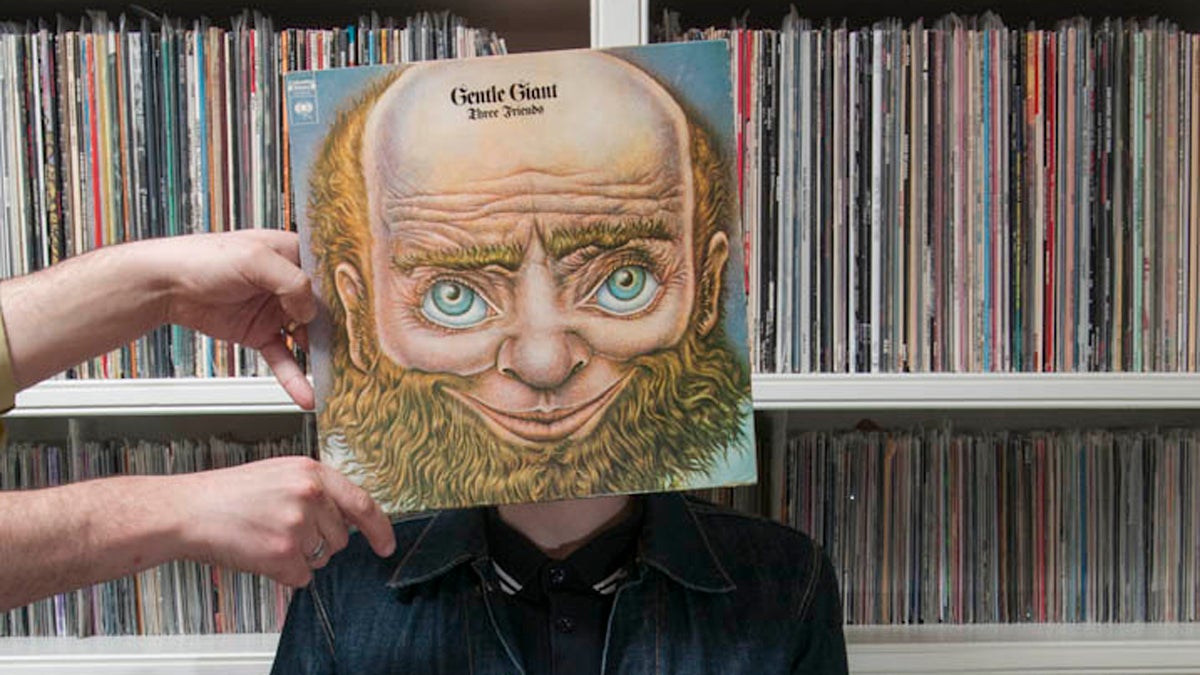Assembling an ‘aural history’ of Philly punk culture

Joseph Gervasi, a Philadelphia-based promoter is assembling the most complete oral history of Philadelphia punk to date (‘Gentle Giant’ Photo by Karen Kirchhoff)
Thirteen year-old Rodney Linderman discovered punk in 1978, growing up in Coatesville, Pa., when he saw a picture of The Dead Boys in his older sister’s copy of “Creem” magazine.
“The Dead Boys had taken a moving van that said ‘Move Yourself.’ They crossed out ‘self’ and wrote ‘ass,'” said Linderman in an interview recorded in the summer of 2013. “You couldn’t see Barry Manilow do that. All of a sudden, a light bulb goes off: there’s something else out there. So I asked my older sister, who had horrible taste in music, ‘What is this band, The Dead Boys?’ And she said, ‘Oh, they’re not a good band, like Fleetwood Mac.'”
Linderman grew up to become Rodney Anonymous, the front man of The Dead Milkmen. His ill will toward Fleetwood Mac survives to this day. He was interviewed by Joseph Gervasi, a Philadelphia-based promoter of horror films (he co-owns the online DVD store Diabolik and co-founded the long-running Exhumed Films screening series) who is assembling the most complete oral history of Philadelphia punk to date.
More than 40 long-form interviews are posted on his webpage, LoudFastPhilly.com, including some of Philadelphia’s earliest punks from the 1970s and younger fans who keep the genre going today.
The one-on-one interviews document the lives of those on the scene and the ideals that drive people to punk music.
“My feeling is that nostalgia is a form of depression. It tends to have people look at a very particular part of their life as being the most vital and crucial part, and other parts are shadows of that,” said Gervasi. “I wanted to focus on people, have a level of creativity that allowed them to engage in a creative process throughout their lives, not just when they were young enough to jump on top of people’s heads.”
Punk does not exist like it used to, when tribes of leather jackets and mohawks would roam South Street. Gervasi found continuity, then to now, in core ideals of independence and creativity.
One of his interview subjects, 28-year old Jessie Bird, discovered punk music as a teenager heavily involved in animal rights activism.
“I used to look at somebody wearing a studded vest and think, ‘that’s my people,'” said Bird in an interview recorded earlier this year. “Now, if I see a studded vest I think, ‘I wonder if they got that at Burberry?'”
Gervasi has also put together a presentation with 90 minutes of vintage punk rock footage shot around Philadelphia over 30 years. He will present that footage at the Mausoleum of Contemporary Art (MoCA) in North Philadelphia this Friday evening.
This evening of vintage punk rock was first presented last May, and has since been repeated in other cities. Gervasi says after Friday he will retire the show forever, while continuing to build the online oral history archive.
WHYY is your source for fact-based, in-depth journalism and information. As a nonprofit organization, we rely on financial support from readers like you. Please give today.





